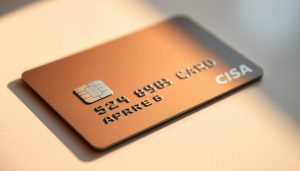Financing a car is a common path for many drivers in the U.S., and if you’re considering a Nissan, it’s important to approach the process with clarity. From understanding loan terms to evaluating dealership incentives, each decision you make can affect your financial comfort for years to come. Being well-prepared can help you navigate financing with confidence and avoid unnecessary setbacks.
What Are the Available Financing Options for Nissan?
Nissan buyers typically have access to both dealership financing and third-party lenders such as banks or credit unions. While dealerships may offer convenience, especially through Nissan’s own financing programs, it’s valuable to compare their offers with those from external sources. Interest rates, loan lengths, and down payment requirements can vary widely depending on where you apply.
Evaluating multiple options gives you perspective on what’s competitive in the market. Sometimes dealer offers come with promotional incentives, like deferred payments or bonus cash, but these can be tied to specific conditions. Reading the full terms helps you understand whether the benefits truly outweigh the restrictions.
How Does Your Credit Score Influence Your Loan?
Your credit profile is a major factor in determining the interest rate and loan terms available to you. Buyers with excellent credit tend to receive more favorable rates, while those with limited or poor credit may face higher costs over the life of the loan. Before beginning the process, check your score and, if needed, take steps to improve it.
Knowing where you stand financially can also help you set realistic expectations. If your credit is in good shape, you can use that as a negotiating tool. If not, planning for a larger down payment or shorter loan term might help offset the higher rate you’re offered.
Should You Choose a Shorter or Longer Loan Term?
Nissan dealerships often offer flexible financing lengths, from 24 months to 72 months or more. While a longer term may reduce your monthly payment, it usually means more interest paid over time. On the other hand, shorter terms often come with higher monthly payments but lower overall costs.
It’s important to strike a balance between affordability and total loan value. A loan that fits comfortably within your budget without stretching your finances can make ownership more enjoyable and sustainable. Don’t let a lower monthly figure cloud your view of the big picture.
What’s the Role of a Down Payment?
Making a significant down payment on your Nissan can lower your loan amount, reduce your monthly payments, and even help you qualify for better interest rates. In some cases, it might also shield you from going “upside down” on the loan—owing more than the vehicle is worth—especially in the early stages of repayment.
Even if a dealer advertises “no money down” offers, it’s worth considering how even a modest initial payment could benefit you in the long run. It’s not just about qualifying for the loan but about protecting your financial position throughout the term.
Are Nissan Promotions Always the Best Deal?
Nissan regularly promotes special offers such as low APR financing, cashback incentives, or lease bonuses. These promotions can be attractive, but they often come with eligibility requirements that not all buyers meet. For example, a 0% APR deal may only be available to those with top-tier credit.
Before accepting a promotional offer, compare it with alternative financing options to see which saves you more over the loan term. Sometimes, taking a rebate and securing a better rate elsewhere results in more long-term savings than accepting a dealership deal that looks better upfront.
What Is the Total Cost Beyond the Sticker Price?
Financing a Nissan involves more than just the cost of the car. You’ll need to account for sales tax, registration, dealership fees, and any optional products like extended warranties or maintenance plans. These costs are often added to the loan, increasing your monthly payment and the interest you’ll pay.
Asking for a complete breakdown of all charges ensures transparency. It also helps you decide whether each additional item adds value or simply increases the cost without meaningful benefit.
How Important Is Pre-Approval?
Getting pre-approved for an auto loan before visiting a Nissan dealership can strengthen your position as a buyer. Pre-approval not only clarifies your budget but also shows the dealer you’re serious and informed. It can even speed up the buying process once you’ve selected a vehicle.
By comparing the dealer’s offer with your pre-approval terms, you gain negotiating power. In many cases, this can lead to better loan conditions or dealer incentives that wouldn’t be offered otherwise.
Have You Considered Future Ownership Costs?
Beyond the loan itself, owning a Nissan comes with regular costs such as maintenance, insurance, and fuel. Different models have varying needs—electric options like the Nissan Leaf have different cost profiles than an SUV like the Rogue or Pathfinder. Factoring in these expenses helps ensure your budget remains realistic even after you drive off the lot.
A car that fits your financing plan but strains your monthly budget in other areas may cause stress down the line. Evaluating total ownership costs alongside financing options can give you a clearer view of what’s truly affordable.
*You will stay on the same site.
What Happens If You Want to Pay the Loan Off Early?
Some lenders, including those that work with Nissan, may have policies around early repayment. While many loans allow you to pay off the balance without penalty, others might include fees or limitations. Knowing these details in advance helps you plan your long-term strategy and take advantage of financial flexibility if your situation improves.
If paying the car off early is part of your goal, ask your lender about terms that accommodate that. Even a small monthly overpayment can reduce your interest over time if allowed by your loan agreement.
Are You Ready to Review Everything Before Signing?
Before finalizing your Nissan financing, take the time to review the full agreement. Look closely at the loan amount, interest rate, monthly payment, total repayment cost, and any optional products you’ve agreed to. Ask for explanations if anything feels unclear or unexpected.
Once you sign, the terms become binding. Being patient and thorough at this stage protects you from misunderstandings and ensures your financing plan aligns with your expectations—not just today, but for the years you’ll be making payments.





